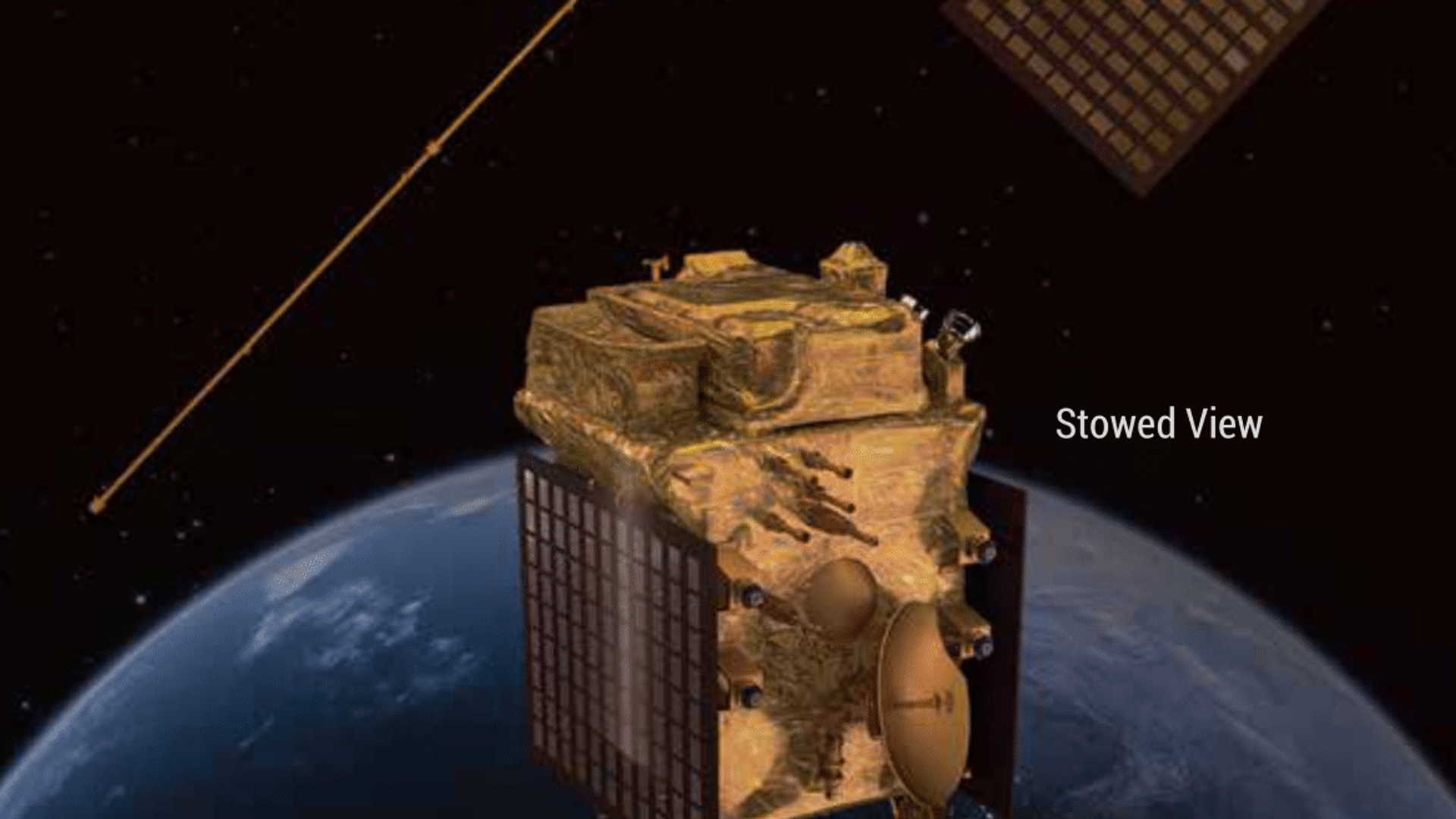https://sputniknews.in/20230915/indias-solar-mission-aditya-l1-completes-fourth-earth-bound-maneuver-4253648.html
India's Solar Mission, Aditya-L1 Completes Fourth Earth-Bound Maneuver
India's Solar Mission, Aditya-L1 Completes Fourth Earth-Bound Maneuver
Sputnik India
The Aditya-L1 spacecraft has successfully performed its fourth Earth-bound maneuver in the early hours of Friday, said the Indian Space Research Organisation (ISRO).
2023-09-15T13:50+0530
2023-09-15T13:50+0530
2023-09-15T13:50+0530
science & tech
science & tech
india
bengaluru
fiji
indian space research organisation (isro)
x (former twitter)
aditya-l1 mission
space satellite
space industry
https://cdn1.img.sputniknews.in/img/07e7/08/1d/3905761_0:864:1166:1520_1920x0_80_0_0_27bf15d59626fa05e000773f81d1acac.png
The Aditya-L1 spacecraft has successfully performed its fourth Earth-bound maneuver in the early hours of Friday, the Indian Space Research Organisation (ISRO) has stated.During the mission, Aditya L1 will execute a sequence of five maneuvers. These maneuvers will provide the satellite with the precise velocity required to embark on its voyage towards Lagrange Point 1.The first, second and third maneuvers were held on September 3, 5 and 10.Scheduled for 19 September 2023, the Trans-Lagrangean Point 1 Insertion (TL1I), the fifth and final maneuver, will serve as a send-off from Earth. This maneuver will mark the beginning of a thrilling journey lasting almost 110 days, leading to its ultimate destination in the vicinity of the L1 Lagrange point.The maneuvers will help the spacecraft gain the necessary velocity for its further journey to L1.This location will enable Aditya-L1 to continuously observe the sun without being hindered by eclipses or occultation, allowing scientists to study solar activities and their impact on space weather in real time.
india
bengaluru
fiji
Sputnik India
feedback.hindi@sputniknews.com
+74956456601
MIA „Rossiya Segodnya“
2023
Deexa Khanduri
https://cdn1.img.sputniknews.in/img/07e6/0c/13/138923_52:0:533:481_100x100_80_0_0_cadf23d341691fc65ff2b22fd1afe584.jpg
Deexa Khanduri
https://cdn1.img.sputniknews.in/img/07e6/0c/13/138923_52:0:533:481_100x100_80_0_0_cadf23d341691fc65ff2b22fd1afe584.jpg
News
en_IN
Sputnik India
feedback.hindi@sputniknews.com
+74956456601
MIA „Rossiya Segodnya“
Sputnik India
feedback.hindi@sputniknews.com
+74956456601
MIA „Rossiya Segodnya“
Deexa Khanduri
https://cdn1.img.sputniknews.in/img/07e6/0c/13/138923_52:0:533:481_100x100_80_0_0_cadf23d341691fc65ff2b22fd1afe584.jpg
india sun mission, aditya-l1 mission, india solar mission, aditya-l1 mission launch date, aditya-l1 launch, aditya-l1 upsc, aditya l1 budget, aditya-l1 rocket, aditya-l1 mission, aditya l1 reach sun, what is l1 in aditya mission, what is the cost of aditya-l1, how far aditya-l1 will be from sun, when aditya-l1 will launch 2023, how far is l1 from earth,
india sun mission, aditya-l1 mission, india solar mission, aditya-l1 mission launch date, aditya-l1 launch, aditya-l1 upsc, aditya l1 budget, aditya-l1 rocket, aditya-l1 mission, aditya l1 reach sun, what is l1 in aditya mission, what is the cost of aditya-l1, how far aditya-l1 will be from sun, when aditya-l1 will launch 2023, how far is l1 from earth,
India's Solar Mission, Aditya-L1 Completes Fourth Earth-Bound Maneuver
Deexa Khanduri
Sputnik correspondent
India successfully launched its inaugural solar mission, Aditya L1, on 2nd September. The mission took place from a halo orbit around the first Sun-Earth Lagrange point (L1), situated approximately 1.5 million km away from our planet.
The Aditya-L1 spacecraft has successfully performed its fourth Earth-bound maneuver in the early hours of Friday, the Indian Space Research Organisation (ISRO) has stated.
“Aditya-L1 Mission: The fourth Earth-bound maneuver (EBN#4) is performed successfully. ISRO’s ground stations at Mauritius,
Bengaluru, SDSC-SHAR and Port Blair tracked the satellite during this operation, while a transportable terminal currently stationed in the
Fiji Islands for Aditya-L1 will support post-burn operations. The
new orbit attained is 256 km x 121973 km,” the ISRO posted on X (formerly
Twitter).
During the mission, Aditya L1 will execute a sequence of five maneuvers. These maneuvers will provide the satellite with the precise velocity required to embark on its voyage towards Lagrange Point 1.
The first, second and third maneuvers were held on September 3, 5 and 10.
Scheduled for 19 September 2023, the Trans-Lagrangean Point 1 Insertion (TL1I),
the fifth and final maneuver, will serve as a send-off from Earth. This maneuver will
mark the beginning of a thrilling journey lasting almost 110 days, leading to its ultimate destination in the vicinity of the L1 Lagrange point.
The maneuvers will help the spacecraft gain the necessary velocity for its further journey to L1.
This location will enable Aditya-L1 to
continuously observe the sun without being hindered by eclipses or occultation, allowing scientists to study solar activities and their impact on space weather in real time.



